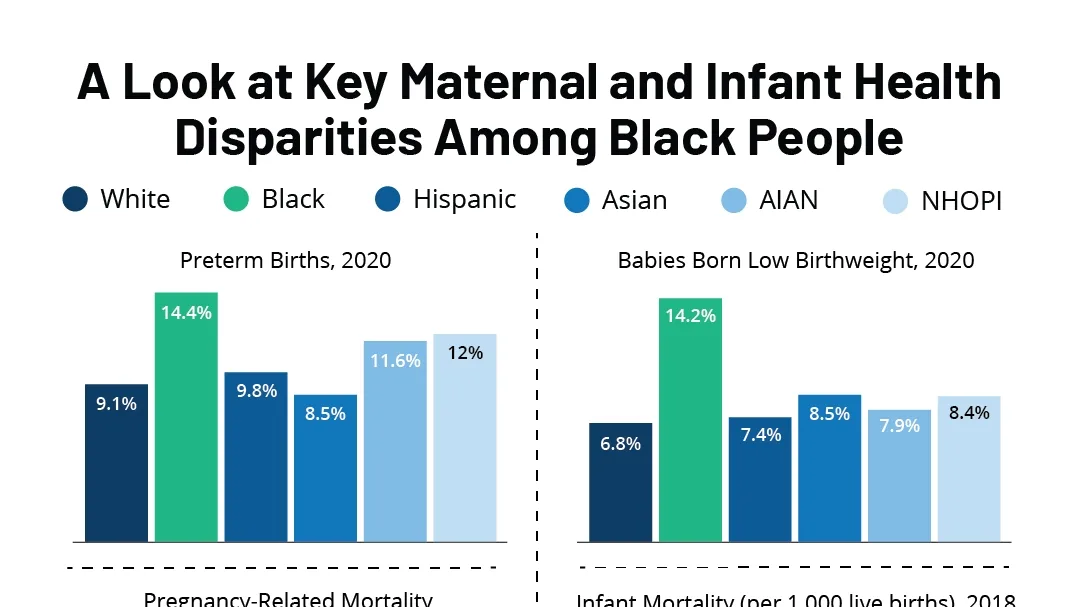
Recent events and studies have highlighted the urgent need to address the healthcare disparities faced by Black mothers, particularly within the field of obstetrics and gynecology. It is of utmost importance to step up and take action to support and advocate for the health and well-being of Black mothers. The critical conditions, challenges, and racial disparities faced by Black mothers in accessing quality healthcare signal the need for systemic change and advocacy efforts.
The Stark Reality of Black Maternal Health
The ‘EmpowerHER: Navigating Black Maternal Health’ event in Indianapolis addressed the maternal health disparities faced by Black mothers, including Indiana’s high maternal mortality rate and the barriers to care faced by Black mothers. The event acknowledged the impact of historical and structural concerns on Black women’s health, and highlighted the tragic story of Dr. Chaniece Wallace, a Black mother who died from complications following the birth of her daughter.
Pregnant Black Individuals’ Preference for Black Obstetric Care Providers
A new study reveals that Black women in the United States are three times more likely to die from a pregnancy-related cause than white women. The study also found that pregnant Black individuals may prefer to have an obstetrician who is also Black. The lead author of the study, Dr. Nicole Teal, suggested that increasing racial diversity among providers could be one strategy to address inequities in obstetric care. Other recommended strategies included increasing continuity with prenatal care providers, eradicating stereotypes of Black mothers, and increasing respectful care in general.
Advocacy for Black Maternal Health
The Black Mamas Matter Alliance is advocating for Black maternal health, rights, and justice. The personal story of Shalon Irving, an epidemiologist who died shortly after giving birth due to medical negligence, underscores the seriousness of this issue.
Legislation to Address Maternal Mortality Rate
California Attorney General Rob Bonta and the California Legislative Black Caucus have introduced legislation aimed at reducing the disproportionate maternal mortality rate of Black women and other pregnant persons of color. The legislation builds on the California Dignity in Pregnancy and Childbirth Act, requiring evidence-based implicit bias training in the healthcare system to address racial disparities in health care. The legislation would require full compliance with the Act, authorize penalties against non-compliant healthcare facilities, and ensure that healthcare systems are held accountable for providing equitable care.
The Need for Increased Education, Awareness, and Advocacy
There is a glaring need to address the healthcare disparities faced by Black mothers in the US. Factors such as limited access to quality care, structural racism, and implicit bias contribute to these disparities. The personal stories of Kimberly Harper, Xaviera ‘Zay’ Bell, and Dr. Rose Antilus, along with alarming statistics on maternal mortality, emphasize the need for increased education, awareness, and advocacy.
It is clear that we must do more to ensure that all Black mothers and pregnant people have access to quality, equitable, and unbiased care. By acknowledging the realities faced by Black mothers, increasing diversity among healthcare providers, advocating for legislative changes, and raising awareness of these disparities, we can start to make a difference in the lives of Black mothers and their families.

